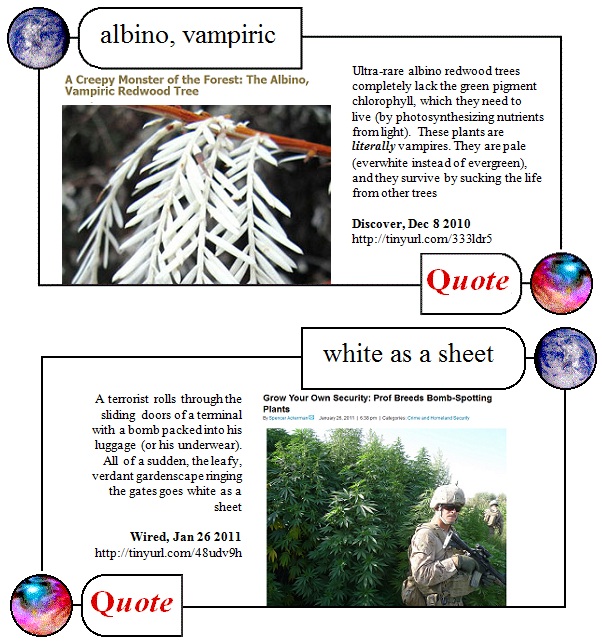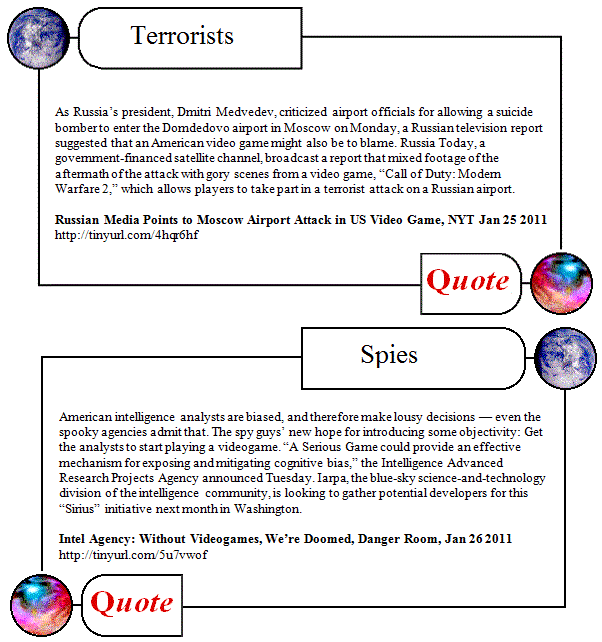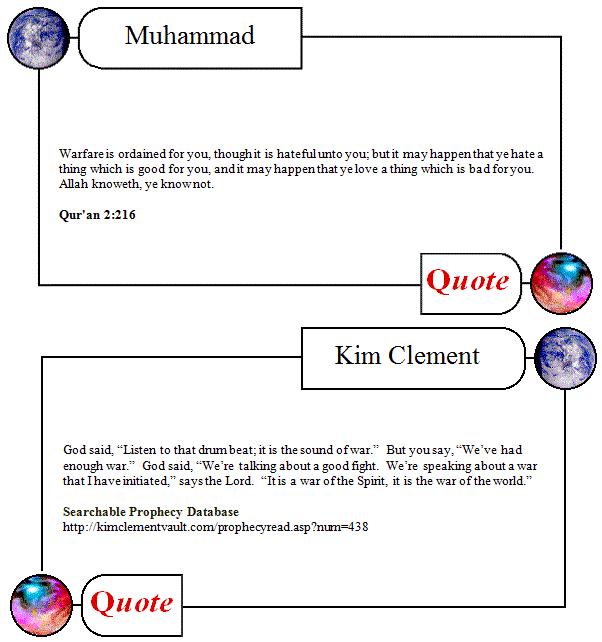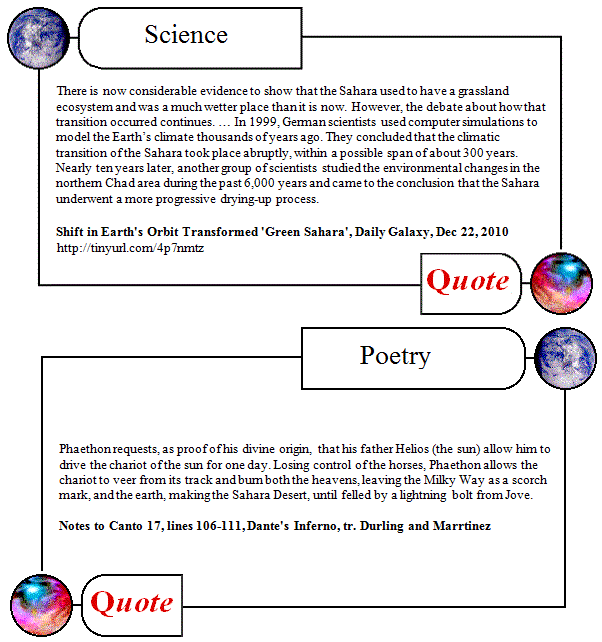[ cross-posted from Zenpundit ]
You know, I really enjoy building my DoubleQuotes. They can be entirely frivolous, as is this one, for instance:
with its touch of gothic — a taste I share with my friend Bryan Alexander.
Or they can work like a Necker cube, offering opposite framings with which to view a single topic — in this case, video games.
They can also work like Rorschach blots — this one compares two prophecies, one from the Quran and one from a contemporary Christian prophet (if I’m not mistaken, President Obama quoted him recently) —
— but it is left up to the reader to determine the value of each…
And they can also pose fundamental questions of preference:
Has science simply replaced myth, d’you think? or is science for the facts, perhaps, and the mind — while poetry and myth are for the heart, and truth?




Sounds similar to the premise of this dude’s book:
http://large.stanford.edu/publications/universe/
BTW Charles, what software(s) do you use to generate your doublequotes?
I have heard speculation from multiple different sources that the Phaeton myth is an attempted mythological rationalization of an ancient impact event.
Has science simply replaced myth, d’you think? or is science for the facts, perhaps, and the mind ”” while poetry and myth are for the heart, and truth?
Mythology and science are different stages of evolution of the same capability: creating predictive models of the universe. Many “myths” have high predictive value and many scientific truths e.g. Newtonian physics, turn out to fictional but useful.
There is also a lot more anthropomorphization of natural phenomena in science than we would like to admit. One of chemistry professor paused in lecture after saying, “So, the chlorine atom desperately wants another electron,” after pausing he said, “It’s funny how we talk about atoms and molecules as if they were little people.” He was correct. We often speak of natural phenomena has if it had desires and violation e.g. “water seeks its own level” or “evolution selects for trait X”. In fact, we really don’t even have a language concept to easily describe natural events except by analogizing them the actions of humans. In this light, pre-scientific mythologies with their supernatural personalities behind natural phenomena don’t seem so silly.
(Today we also create elaborate mythologies dressed up in pseudo-science e.g. Marxism and Freudianism.)
Hi, Shannon:
Nice comment, with which I largely agree — thanks!
I’d make one further distinction, though. I think myth served two purposes, one of which became the sciences as you suggest, the other, in my view, becoming the arts. I’d read Ibn Khaldun, Firdawsi and Shakespeare to glimpse what’s going on in Egypt right now, even on a “predictive” level — but there may also be truths that are of the imagination sui generis, not factual, not predictive, not even what we usually mean by the word “rational”.
Cornelius Castoriadis in his World in fragments: writings on politics, society, psychoanalysis, and the imagination writes:
I think myth started out as explanations in that spirit”¦ that the sciences have continued the explaining with dramatic success, while the arts seem to me to struggle to maintain the spirit”¦
*
Phil:
I hope this responds to your comment, too — thanks!
I’m interested in poetic as well as “euhemerist” explanations of myth.
M. Fouche:
I have a “blank” DoubleQuotes .gif which I open in Paint on my PC, and cut and paste from Paint for graphics and Word for text. I then save the DQ as a .gif if the contents are all text, and as a .jpg if I’ve used images.